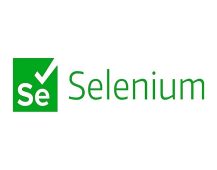A2Bookmarks Argentina Social Bookmarking Website
Descubre A2Bookmarks, el sitio web de marcadores sociales líder en Argentina, diseñado para optimizar tu experiencia en línea. Ya sea que desees guardar y organizar tus sitios web favoritos, compartir contenido valioso con la comunidad o explorar temas en tendencia, A2Bookmarks ofrece una plataforma amigable adaptada para los usuarios argentinos. Disfruta de una mayor visibilidad para tus marcadores, interactúa con contenido local y global, y únete a una vibrante comunidad de usuarios apasionados por descubrir y compartir lo mejor de la web. ¡Regístrate hoy y revoluciona la forma en que guardas y te conectas en línea con A2Bookmarks Argentina!


Global Battery Management System Market Poised for Strong Growth with Rising Adoption of Electric Vehicles and Renewable Energy marketintelo.com
Market Overview
The global Battery Management System (BMS) market is gaining remarkable momentum as the world shifts toward electric mobility and renewable energy storage solutions. According to the latest report by Market Intelo, the Battery Management System market was valued at USD 7.8 billion in 2022 and is projected to reach USD 28.5 billion by 2032, expanding at a robust CAGR of 14.1% between 2023 and 2032.
BMS plays a vital role in monitoring and regulating the performance of rechargeable batteries, ensuring efficiency, safety, and longevity. With rising demand for electric vehicles (EVs), energy storage systems, and portable electronics, the adoption of advanced BMS solutions is expected to surge significantly over the next decade.
Key Market Drivers
Electrification of the Automotive Industry
The automotive sector is the largest consumer of BMS technology. With global EV sales accelerating, manufacturers are integrating advanced BMS solutions to improve vehicle performance, extend battery life, and enhance safety. Government policies promoting clean mobility and stricter emission norms are further propelling BMS adoption in EVs, hybrid vehicles, and plug-in hybrids.
Growing Investments in Renewable Energy Storage
The global shift toward renewable energy sources, particularly solar and wind, is fueling demand for energy storage systems (ESS). BMS plays a critical role in maintaining efficiency and stability in large-scale ESS, making it a cornerstone technology for smart grids and decentralized power networks.
Rising Demand for Consumer Electronics
From smartphones and laptops to wearable devices, consumer electronics rely heavily on battery performance. Manufacturers are increasingly adopting advanced BMS solutions to meet consumer expectations for longer-lasting, safe, and energy-efficient devices.
Market Dynamics
Key Growth Drivers
-
EV Boom: Global EV adoption is directly driving BMS demand.
-
Energy Storage Integration: Renewables are creating opportunities in grid and off-grid storage systems.
-
Safety Regulations: Growing emphasis on thermal management and battery safety standards.
Challenges
-
High Initial Costs: Advanced BMS integration can increase product pricing.
-
Complex Architecture: Designing scalable systems for large battery packs remains a challenge.
-
Technological Competition: Alternative battery chemistries could disrupt traditional BMS models.
Market Segmentation
The Battery Management System market is segmented by battery type, topology, application, and region.
By Battery Type
-
Lithium-ion (Li-ion): Dominates due to widespread use in EVs and electronics.
-
Lead-Acid: Still relevant in low-cost and industrial applications.
-
Nickel-based Batteries: Niche applications requiring robust performance.
By Topology
-
Centralized BMS: Suitable for smaller battery packs.
-
Modular BMS: Popular in EVs and industrial applications.
-
Distributed BMS: Used in large-scale storage systems for high flexibility.
By Application
-
Automotive: EVs, hybrid vehicles, and plug-in hybrids.
-
Energy Storage Systems: Utility grids, residential, and commercial storage.
-
Consumer Electronics: Smartphones, laptops, wearables, and power tools.
-
Industrial Applications: Robotics, UPS systems, and aerospace equipment.
Regional Insights
The Battery Management System market demonstrates strong growth across multiple regions:
-
North America: Leads in adoption, driven by EV market expansion and government incentives for clean energy.
-
Europe: Benefits from strict carbon regulations and growing investments in renewable storage.
-
Asia-Pacific: Fastest-growing region, fueled by China’s EV dominance, India’s electrification plans, and South Korea’s tech innovation.
-
Latin America & Middle East: Emerging opportunities in renewable integration and industrial automation.
Competitive Landscape
The market is highly competitive, with companies investing heavily in R&D and strategic collaborations. Leading players are focusing on enhancing performance, safety, and cost efficiency of their BMS solutions. Major players include:
-
LG Chem Ltd.
-
Panasonic Corporation
-
Robert Bosch GmbH
-
Texas Instruments Inc.
-
Analog Devices Inc.
-
Nuvation Energy
-
Johnson Matthey PLC
-
Renesas Electronics Corporation
-
Sensata Technologies
-
Toshiba Corporation
These companies are adopting strategies such as product launches, joint ventures, and acquisitions to expand their market presence. Investments in AI-driven predictive analytics, thermal management, and cloud-connected BMS platforms are shaping the competitive landscape.
Technological Advancements
Innovation remains at the core of the Battery Management System market. Emerging trends include:
-
AI and Machine Learning Integration: Enabling predictive battery diagnostics and real-time analytics.
-
Wireless BMS: Reducing wiring complexity and improving efficiency in EVs.
-
Solid-State Batteries: Driving demand for next-generation BMS architectures.
-
Cloud-Based Platforms: Enhancing fleet management and remote monitoring capabilities.
These technological shifts are expected to accelerate the adoption of BMS across automotive, industrial, and consumer segments.
Future Outlook
The future of the Battery Management System market looks promising, with robust growth anticipated across automotive and energy sectors. By 2032, the market is expected to surpass USD 28.5 billion, driven by innovations in EV technology, renewable storage, and smart energy systems.
With sustainability, efficiency, and safety at the forefront, BMS will continue to play a crucial role in enabling the global energy transition. Companies that focus on integrating AI-driven insights, wireless architectures, and eco-friendly solutions will be well-positioned to lead the market in the coming decade.












